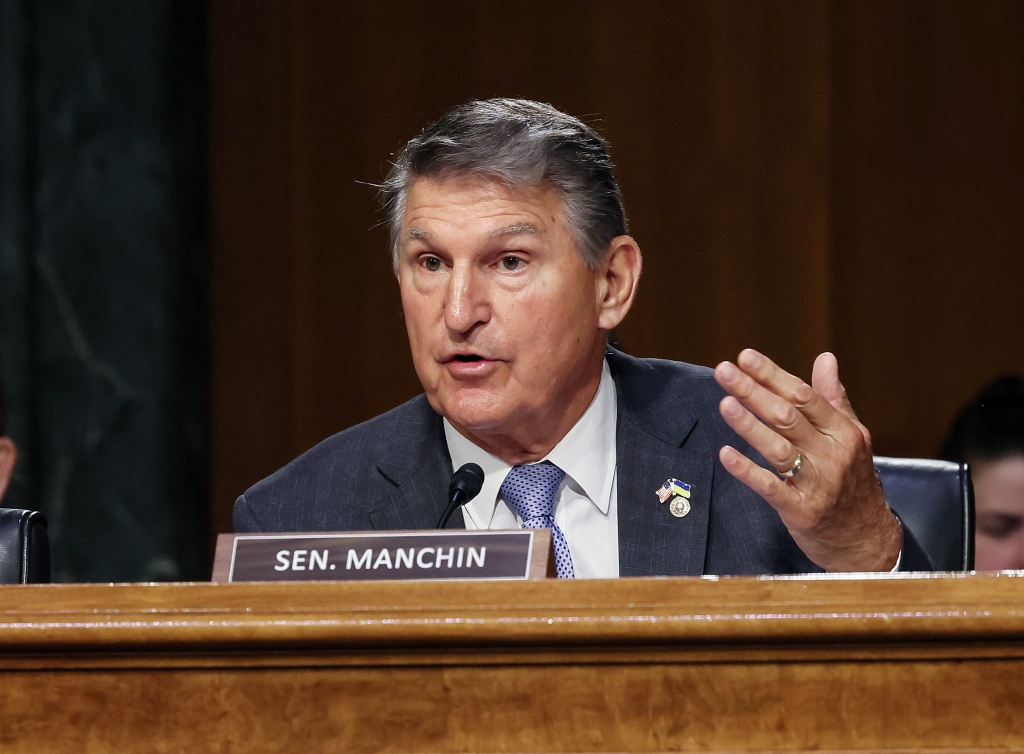Senate Dems vote against DoD ban on transgender procedures for kids
A handful of Senate Democrats voted last month against legislation that would bar a military health benefit program from covering gender procedures on children that could result in sterilization — including hormone therapy and puberty blockers.
All 12 Democratic members of the Senate Armed Services Committee — as well as independent Angus King of Maine — voted June 29 to strip the provision from the must-pass 2024 National Defense Authorization Act (NDAA), opening the door for the Pentagon to fund so-called “gender-affirming care” for minors.
Panel Chairman Jack Reed (D-RI) joined Sens. Jeanne Shaheen (D-NH), Kirsten Gillibrand (D-NY), Richard Blumenthal (D-Conn.), Mazie Hirono (D-Hawaii), Tim Kaine (D-Va.), Gary Peters (D-Mich.), Elizabeth Warren (D-Mass.), Tammy Duckworth (D-Ill.) Jacky Rosen (D-Nev.), Mark Kelly (D-Ariz.) and centrist Sen. Joe Manchin (D-WV) in opposing the provision during the committee’s markup of the bill.
“Senator Manchin believes service members have earned the right to make medical decisions for their children and families,” a spokesperson for the West Virginian told The Post.

No other members responded to a request for comment.
Twelve Republican senators voted in favor of keeping the coverage ban, including ranking member Roger Wicker of Mississippi, Deb Fischer of Nebraska, Tom Cotton of Arkansas, Mike Rounds of South Dakota, Joni Ernst of Iowa, Dan Sullivan of Alaska, Kevin Cramer of North Dakota, Rick Scott of Florida, Tommy Tuberville of Alabama, Markwayne Mullin of Oklahoma, Ted Budd of North Carolina and Eric Schmitt of Missouri.
The motion would have blocked such interventions on Americans under 18 years old from being backed by the TRICARE health program.
Several Western nations have already banned or severely limited the practice of hormone therapy and providing puberty-blocking drugs to children, citing physical and psychological harms and the need for further study of long-term effects.

The UK’s National Health Service announced last month that it would not use puberty blockers “outside of a research setting.” Sweden and Finland have also restricted the use of hormones outside of severe cases, opting for psychological interventions instead.
US Assistant Health and Human Services Secretary Rachel Levine, a trans woman, has supported the treatments and called criticism of the practices “unconscionable.”
“President Biden supports you … Vice President [Kamala] Harris supports you,” Levine said during a February talk at the Pediatric Grand Rounds in Hartford, Conn. “Across the administration, the departments support you.”
Levine, who transitioned at the age of 40, previously spoke of the downsides of childhood gender changes, saying, “I have no regrets, because if I had transitioned when I was young then I wouldn’t have my children.”
Doctors in the Defense Department also praised “gender-affirming health care” in an article for the American Journal of Public Health earlier this year, arguing children “have an inherent ability and right to consent” to the interventions.
The Pentagon spent $15 million between 2016 and 2021 on transgender service members, of which $11.5 million was for psychotherapy and $3.1 million for actual operations, Military.com has reported. It is unclear how much went toward procedures on minors.
The Senate Armed Services Committee began deliberations this month on fiscal year 2024 spending for US defense, preparing to authorize $876.8 billion for an array of Defense Department and Department of Energy programs.
The Senate typically votes on final NDAA approval before the August recess, though Senate Majority Leader Schumer (D-NY) has postponed the vote in the past few years.
Read the full article Here


